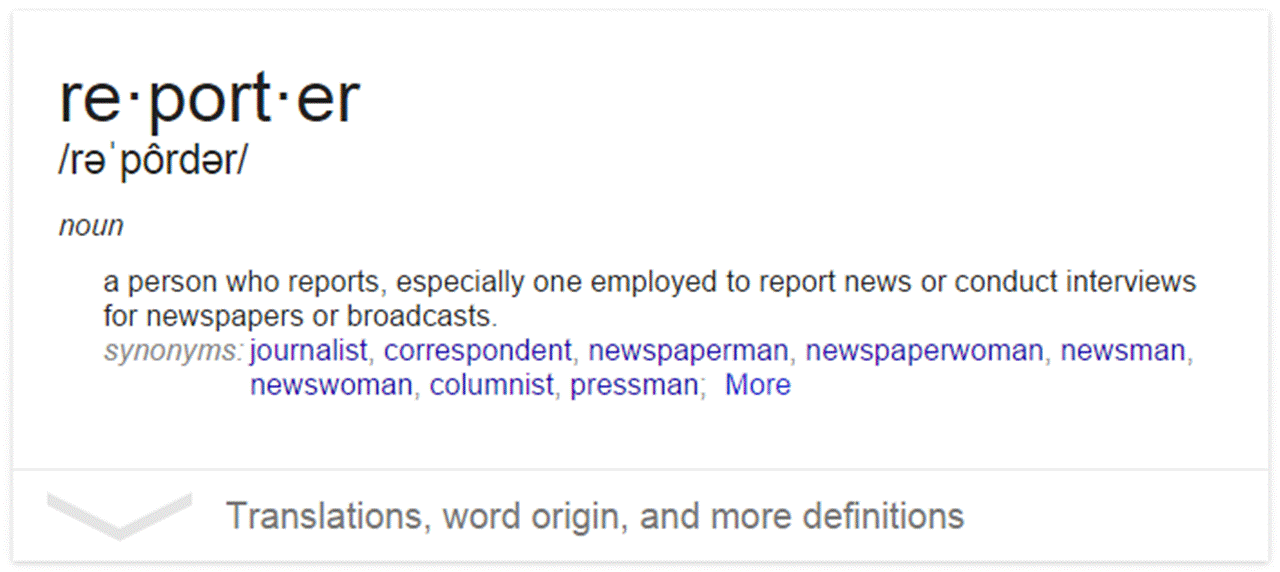A ritual hazing practice in many organizations (including department meetings) is to ask the newest person in the room to “take the minutes”, “secretary” is too loaded of a term now, so we call them a recorder:
12 years ago I thought I was novel for typing meeting minutes in an e-mail window in real time and sending to the team at the close of the meeting. After awhile though I realized that nobody went back and read the minutes. Thank goodness they didn’t! My recording was sloppy relative to the free audio recorder apps on most cellphones nowadays.
What happens far more often is somebody asks “Anything important happen in the meeting? Anything to report out from the meeting?” What we want is the essence of the meeting, the distillation without the noise, the summary of only what’s important. We want efficient information transfer and retention.
Enter the reporter:
A good reporter almost always has a record of the discussion, but we never hear it. A good reporter begins in an un-expected way, is fast, omits useless words, teaches us new value, and provides the most reward for the time spent — because it’s easy to read something else.
Five years ago I taught students that if it wasn’t written down, it never happened. Last year I taught that if it’s not written on-line it never happened. Today I teach that if it’s not on-line in real-time you’re losing potential partners. I have no idea what I’ll teach next year.
If we structured our meetings around what we plan to report instead of what we plan to record, we might be surprised at what we accomplish.

